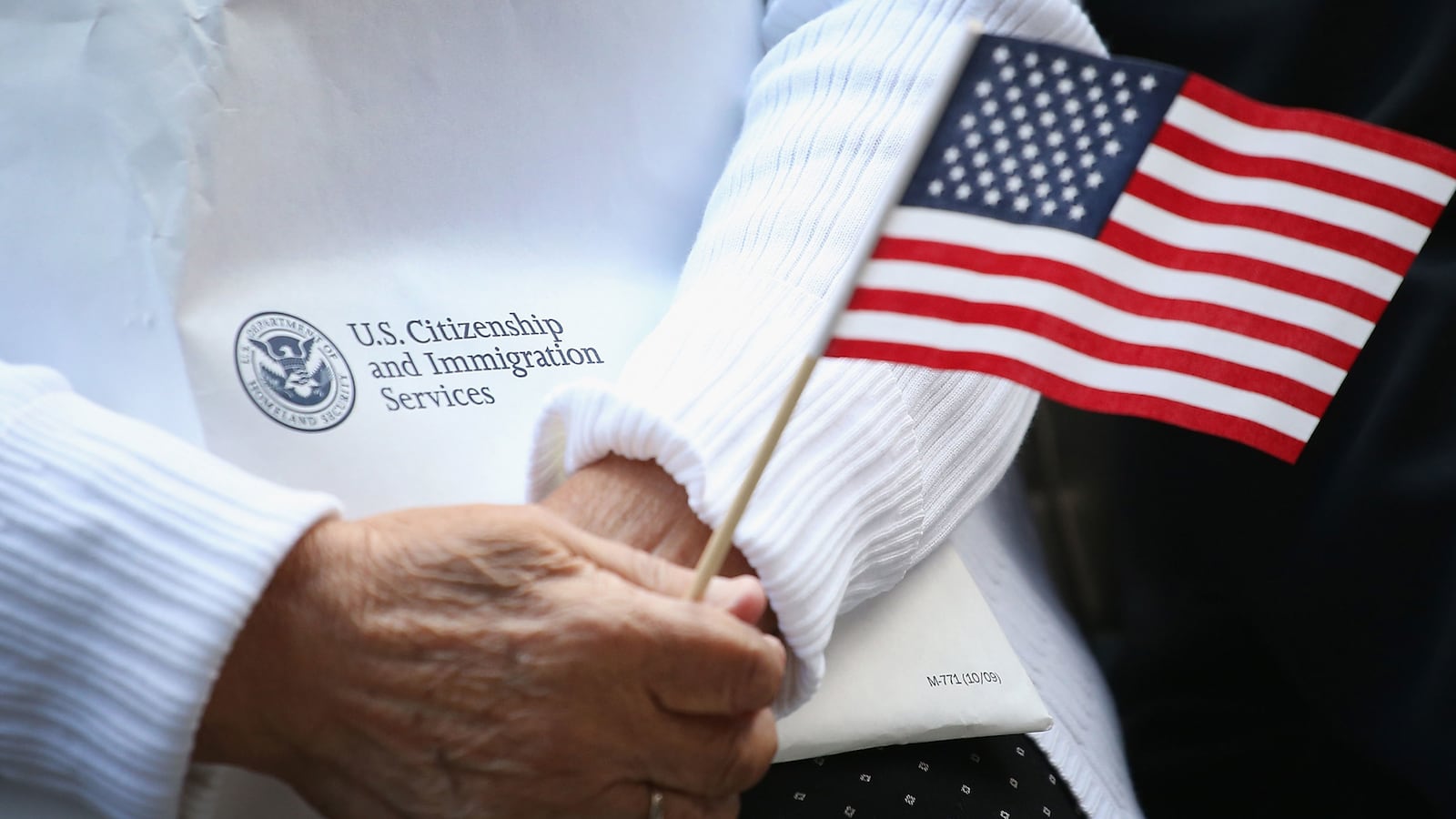Democrats have a novel and so-far unrealized capacity to stop President Donald Trump from deporting undocumented immigrants: the power of the pardon.
The federal government may deport an undocumented immigrant based on previous criminal convictions, even when those convictions are based on state law. In practice, a criminal conviction triggers the majority of deportation proceedings. According to U.S. Immigration and Customs Enforcement, for the 2016 fiscal year, 58 percent of total removals and 92 percent of removals from places other than the U.S. border were of persons with a criminal conviction.
This creates an opportunity for states: Many governors possess an expansive pardon power under their state constitutions, which allows them to nullify previous criminal convictions. Pardoning old convictions is another tool that Democratic states can use to prevent unjust deportations of people who have lived in the United States for many years, have families and jobs here, and who are not dangerous.
This proposal has its limits. Currently, the Immigration and Nationality Act provides a waiver from deportation where a state governor has granted a full pardon of the underlying conviction. However, the Justice Department’s Board of Immigration Appeals has held that this does not apply to nonviolent drug offenses. In December 2010, New York Governor David Paterson granted 33 pardons to immigrants facing deportation proceedings on account of “extremely inflexible” immigration laws (PDF). The pardons that Paterson made for drug possession, however, were not eligible for the waiver. Federal immigration law also contains exclusions for firearms offenses, domestic violence, human trafficking, espionage, terrorism, and others. If a state governor pardons a conviction of one of these offenses, it may not be enough to stop a deportation.
The constitutionality of this system is unclear. Surely if a person is deportable because of an underlying criminal conviction, then canceling the conviction should render him or her ineligible for deportation. The exclusion of nonviolent drug offenses is especially illogical in places where marijuana possession is now legal and old convictions have been expunged.
Nonetheless, even if nonviolent drug offenses are excluded, state governors still have broad authority to cancel criminal convictions and prevent deportation. Old convictions for theft, assault, robbery, and other crimes still could trigger removal even many years after an undocumented immigrant has served his or her sentence. At least in some circumstances, deportation would serve an injustice, such as where deportation divides families and removes longtime and successful members of the community.
Using the state pardon power in this way has precedent. In 1996, Congress passed the Illegal Immigration Reform and Immigrant Responsibility Act, which authorized mandatory deportations even for certain misdemeanor convictions involving theft or assault. The law also removed the flexibility of immigration judges to waive deportations and the ability to challenge deportations in court. The 1996 law was retroactive, meaning that very old convictions for relatively minor crimes could suddenly result in mandatory removal from the United States.
In response to this change in law, at least one state activated its pardon powers. The Georgia Board of Pardons and Parole granted 138 pardons between 2000 and 2001 to permanent resident aliens with prior misdemeanor convictions, many of whom were married to U.S. citizens and had U.S. citizen children, in order to prevent their deportation (PDF). This is all the more remarkable because in Georgia, the non-partisan board alone has the ability to grant pardons. The governor plays no role in the decision-making process, except to appoint members of the board.
The opportunity for Democratic governors like Jay Inslee of Washington, Andrew Cuomo of New York, and Jerry Brown of California is clear. Unlike Georgia, where pardons are made by an independent board, Inslee, Cuomo, and Brown possess the full range of the pardon power under their state constitutions. The pardon decision is theirs alone. That means they are uniquely well-placed to mitigate the harm caused by federal deportations.
Not all Democratic governors are as fortunate. Pennsylvania has a hybrid procedure: Governor Tom Wolf can only grant pardons with the recommendation of the Pennsylvania Board of Pardons. This board is composed of elected officials, career prosecutors, and a crime victim—hardly a recipe for policy innovation. In Virginia, the governor in theory exercises the pardon power. However, when Governor Terry McAuliffe attempted to restore voting rights to ex-felons, the Virginia Supreme Court prevented him from issuing a blanket grant of clemency. In Rhode Island, the governor can only pardon with the approval of the state senate. This process is cumbersome and as a result, pardons are very rare.
But where the pardon power can be used to prevent unjust deportations, it should be. Using the pardon power to protect undocumented migrants and their families could be a new litmus test for Democratic governors with presidential aspirations. This is no substitute for immigration law reform; at best, it is an imperfect solution to an urgent crisis. Nonetheless, using the state pardon power to prevent unjust deportations is another way that Democratic governors can stand up to the Trump administration.
Andrew Novak is term assistant professor of Criminology, Law and Society at George Mason University.






